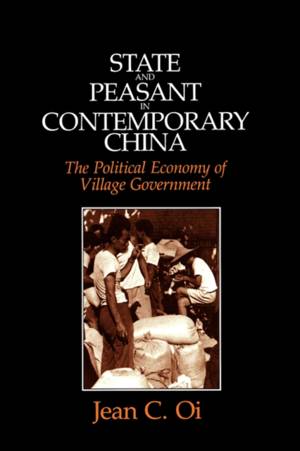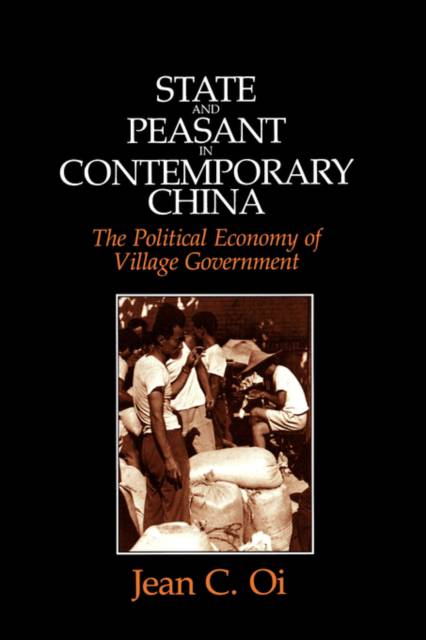
- Afhalen na 1 uur in een winkel met voorraad
- Gratis thuislevering in België vanaf € 30
- Ruim aanbod met 7 miljoen producten
- Afhalen na 1 uur in een winkel met voorraad
- Gratis thuislevering in België vanaf € 30
- Ruim aanbod met 7 miljoen producten
Zoeken
State and Peasant in Contemporary China
The Political Economy of Village Government Volume 30
Jean C Oi
€ 57,95
+ 115 punten
Omschrijving
This is a study of peasant-state relations and village politics as they have evolved in response to the state's attempts to control the division of the harvest and extract the state-defined surplus. To provide the reader with a clearer sense of the evolution of peasant-state relations over almost a forty-year period and to highlight the dramatic changes that have taken place since 1978,1 have divided my analysis into two parts: Chapters 2 through 7 are on Maoist China, and chapters 8 and 9 are on post-Mao China. The first part examines the state's grain policies and patterns of local politics that emerged during the highly collectivized Maoist period, when the state closed free grain markets and established the system of unified purchase and sales (tonggou tongxiao). The second part describes the new methods for the production and division of the harvest after 1978, when the government decollectivized agriculture and abolished its unified procurement program.
Specificaties
Betrokkenen
- Auteur(s):
- Uitgeverij:
Inhoud
- Aantal bladzijden:
- 308
- Taal:
- Engels
- Reeks:
- Reeksnummer:
- nr. 30
Eigenschappen
- Productcode (EAN):
- 9780520076372
- Verschijningsdatum:
- 12/08/1991
- Uitvoering:
- Paperback
- Formaat:
- Trade paperback (VS)
- Afmetingen:
- 152 mm x 229 mm
- Gewicht:
- 462 g

Alleen bij Standaard Boekhandel
+ 115 punten op je klantenkaart van Standaard Boekhandel
Beoordelingen
We publiceren alleen reviews die voldoen aan de voorwaarden voor reviews. Bekijk onze voorwaarden voor reviews.











